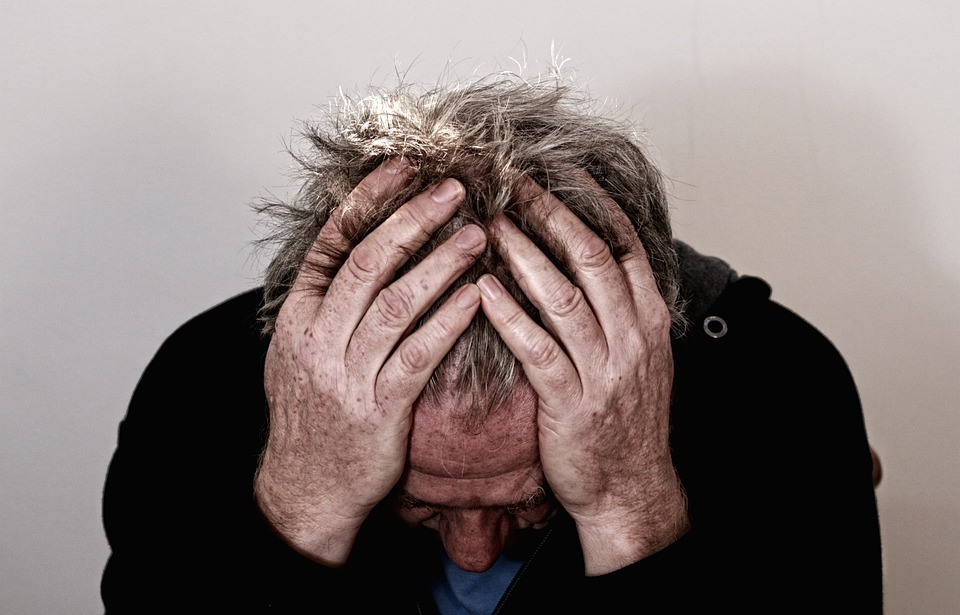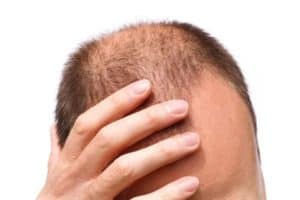It’s no secret that anti-depressants can sometimes come with a number of side effects. Whilst Sertraline (Zoloft) is a powerful SSRI anti-depressant that can help you begin to feel like yourself again, it can also cause hair loss in some patients. At Harley Street Hair Transplant Clinics, we’re here to help if you suffer with hair loss from antidepressant medications.
On this page you’ll find everything you need to know about antidepressant induced hair loss, and how to manage and treat it
What is Sertraline?

Sertraline is an anti-depressant medication prescribed by doctors to alleviate symptoms of depression.It is a powerful SSRI that prevents the re-uptake of a chemical called serotonin across the synapses in your brain. This helps to increase the amount of serotonin available in your brain, increasing traffic across your neural pathways, resulting in an elevated mood.
Selective Serotonin Reuptake Inhibitors are used to treat a range of psychological conditions, such as: obsessive compulsive disorder (OCD), Unipolar Depression, Post-Traumatic Stress Disorder (PTSD).
Whilst Sertraline treatment does seem to be effective at helping alleviate symptoms of chronic and severe depression, recent studies (along with anecdotal evidence) suggests one side effect to be hair loss. Although rare, it is always wise to consider the side effects of anything you decide to place in your body.
How does Sertraline Related Hair Loss Occur?
Of course, Sertraline and other antidepressants are considered to be a safe and effective medication. They have to pass rigorous testing methods across the world. Despite being largely safe, in rare cases it can cause hair loss.
In a study conducted by Kivrak et. al (2015), an extended analysis of a 21 year old patient showed Sertraline induced hair loss to be an unusual, yet problematic, side effect. This research found Sertraline to cause hair loss in the patient, but were unsure as to why this occurred. They also found that once the patient switched anti-depressants, symptoms of alopecia ceased and hair began to regrow. So what does this mean?
First of all, this study would suggest that anti-depressants typically produce temporary hair loss. This means that once Sertraline use has stopped, your hair loss symptoms will also stop. From here, your hair should, slowly but surely, begin to grow again.
Another issue raised by the study is that there is no definitive research linking antidepressants by causality. Research by Mclean and Harrison (2009) concluded that there are several different explanations for hair loss during SSRI use. Whilst serotonin reuptake inhibitors may well cause hair loss, it could also be equally likely that patients may have pre-existing health conditions, or take other medications, that have a much stronger influence on hair loss. In any case, hair loss can be a stressful time in any man, or woman’s life, regardless of how it occurs.
Antidepressants and Telogen Effluvium
In cases of Sertraline, or Venlafaxine, induced hair loss, antidepressants cause hair loss by reacting with a person’s telogen effluvium. Telogen Effluvium is a process related to the shedding of hair follicles on the scalp and body.
It is believed that some antidepressants cause hair loss by elongated a person’s “telogen phase”, or resting stage. This is the phase after you have shedded your hair, and your follicle is in a state of rest and recuperation.
Predictably, the elongation of this period prevents new hair growth on your head, giving the impression of thinning hair. Telogen effluvium is categorised as having the excessive, non-scarring hair shedding. In this particular instance, it would be caused by medication use.
Can other antidepressants cause hair loss?
Yes, it is not uncommon for this to be a rare side effect of antidepressant medication. The Iranian Journal of Psychiatry and Clinical Psychology have stated that people can lose hair taking Prozac (fluoxitine) or Effexor XR (venlafaxine)
Similarly, the Journal of Clinical Psychology have also suggested the same side effects may occur with Celexa (Citilopram).
Whilst antidepressant related hair loss may be concerning, it is important to remember that this is almost certainly a solvable issue. Hair growth can continue if you change medication.
Peer reviewed studies are being conducted by professionals on this issue every day, with many companies developing other SSRI’s that minimise hair loss. In a recent study conducted by the Institute of Clinical Pharmacology (2018), Paroxetine showed to produce the lowest risk of hair loss when compared to 9 other SSRI’s.
What Symptoms May Be Experienced?
There are many symptoms you should watch out for if you think you may be suffering with SSRI-induced hair loss. The key factors to watch out for are:
- thinning hair – you may experience hair thinning on the top (crown) area of your head.
- bald patches – this may present itself in patchy bald spots (around the size of a small coin) anywhere on the head
- increased hair shedding – this is where more hair than usual will shed from your head.

You may notice these symptoms in may different ways. Some patients come to us having noticed hair on their pillows, or hair brush, in a morning. Others have reported seeing extra hair shedding in the shower. In any case, it’s nothing to be scared of, as there is plenty you can do to manage (perhaps even stop) these symptoms!
How Can Sertraline Hair Loss Be Minimised?
There are plenty of things you can do to prevent hair loss and promote hair regrowth. However, if you’re suffering with depression and worried about hair loss, always consult medical advice from a doctor or psychologist you trust. Nothing compares to professional medical advice!
Change your Anti-Depressant
One of the first things you can do is ask to change the antidepressant you are currently on. Discuss your situation with your doctor and ask if there is any possibility of changing the current antidepressant you are on. There are many different SSRI’s and mood stabilizers a doctor can prescribe. So, there is no harm in trying.
Another factor to consider would be reducing your dose. This may enable your hair to grow back. Of course, consult a doctor first.
Stop Taking Anti-Depressants
Disclaimer: do not do so without consulting your doctor’s advice first.
Antidepressants are not the only way patients can manage their symptoms of depression. If you feel you’re suffering with sertraline induced hair loss, then you can always look towards more holistic methods of depression treatment, such as Cognitive Behavioural Therapy (CBT).
Although more expensive than anti-depressants, partaking in therapy is a surefire way to stop drug treatment (to check for hair loss) whilst still managing your depression symptoms responsibly. To reiterate, do not stop taking your antidepressants without professional medical advice.
Use a Hair Loss Drug
If you’re suffering with hair loss, whether it be induced by antidepressants or otherwise, a good way to manage (and slow) signs of hair loss is using chemical treatments such as minoxidil or finasteride.
These chemical treatments are a fantastic way to slow initial signs of hair loss. They’re a great measure to take if you want to act early! Chemical treatments are easy to purchase over the counter from pharmacies (Boots, Superdrug, or even Amazon), just run the decision by your doctor first!
Get a Hair Transplant
If you stop taking your antidepressants and are still suffering with the effects of hair loss, then this may be a sign of a condition called male pattern hair loss. This condition (also called androgenetic alopecia) is a hereditary condition that affects almost half of the population.
Whether you’re taking anti-depressants or not, male pattern baldness will continue to affect many men and women. Although this condition will not pose any serious health problems for patients, it can lower self-esteem and confidence.
Androgenic Alopecia is treatable with a hair transplant procedure.








